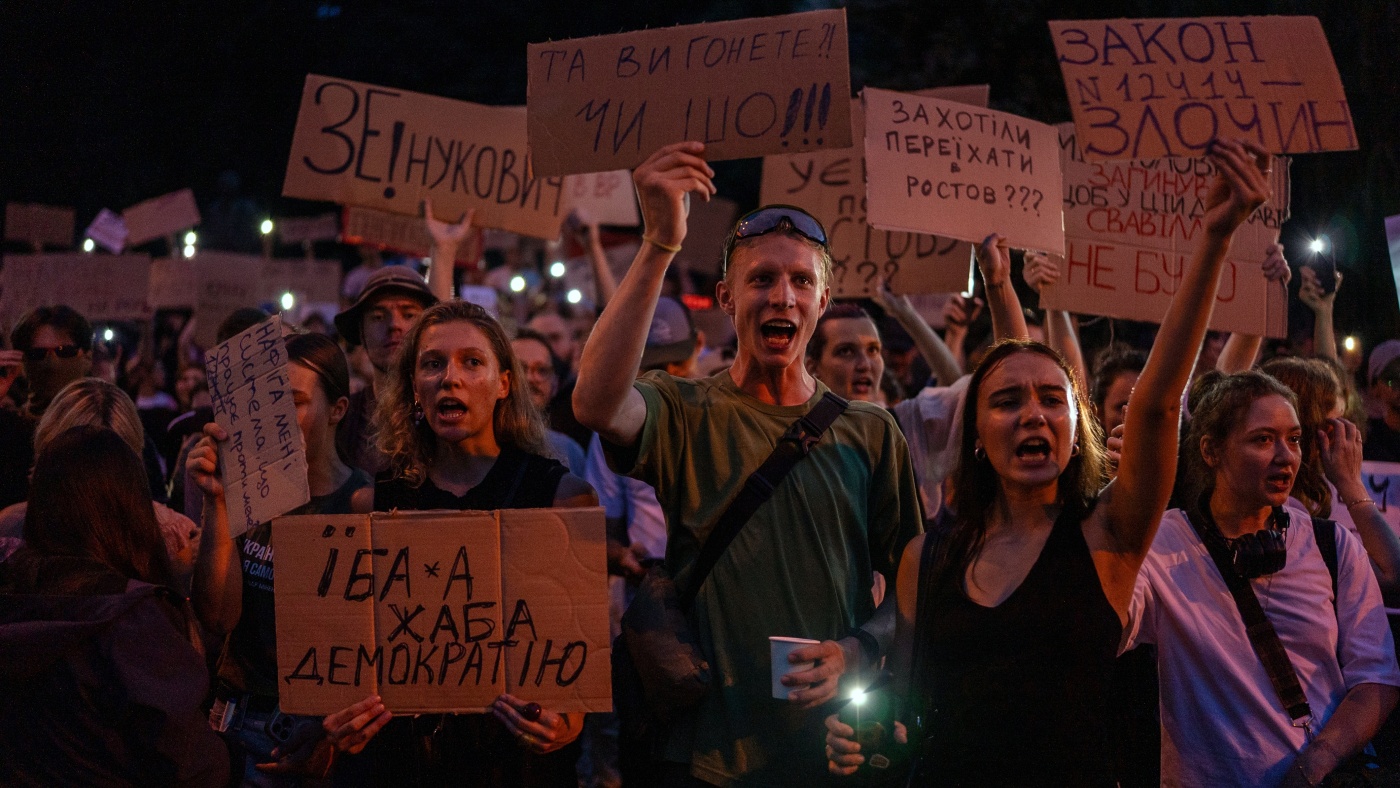The Storm Over Ukraine’s Anti-Corruption Reforms
Ukraine stands at a critical juncture, facing not only the brutal realities of war but also a deepening internal crisis that threatens to undermine its democratic progress. The recent controversy surrounding President Volodymyr Zelenskyy’s signing of a bill perceived to weaken anti-corruption agencies has sparked widespread outrage, both domestically and internationally. This move, coming at a time when Ukraine is desperately seeking to solidify its Western alliances and secure its future, raises serious questions about the country’s commitment to reform and the rule of law.
The Controversial Bill: A Step Backward?
At the heart of the controversy is a bill that tightens oversight of Ukraine’s two key anti-corruption bodies: the National Anti-Corruption Bureau (NABU) and the Specialized Anti-Corruption Prosecutor’s Office (SAPO). The legislation, which was rushed through parliament with minimal public consultation, introduces changes to the selection process for leadership positions within these agencies. Critics argue that these changes could significantly undermine the independence of these institutions, making them more susceptible to political influence.
The anti-corruption agencies were established in the wake of the 2013 pro-democracy protests, known as the Euromaidan, as part of a broader effort to combat the endemic corruption that has long plagued Ukraine. These institutions were seen as a beacon of hope, a tangible step towards a more transparent and accountable government. The passage of this bill, therefore, is viewed by many as a betrayal of the promises made during the Euromaidan and a dangerous rollback of crucial reforms.
Public Outcry and Protests
The signing of the bill has ignited a firestorm of protests across Ukraine. Thousands of citizens have taken to the streets, expressing their discontent with what they see as a betrayal of the principles that brought Zelenskyy to power. The protests are not merely localized events; they represent a groundswell of public opposition to a move that many believe could erode public trust in the government.
Beyond the visible demonstrations, there is a palpable sense of anger and disillusionment simmering beneath the surface. Activists, civil society organizations, and even some members of parliament have voiced strong condemnation of the law. They argue that it represents a significant setback to Ukraine’s reform efforts and could undermine the country’s aspirations for closer ties with the European Union.
Zelenskyy’s Defense: National Security and Efficiency
In response to the mounting criticism, President Zelenskyy has attempted to defend his decision. He argues that the changes are necessary to streamline the anti-corruption process and ensure that these agencies operate effectively. He suggests that corruption cases have been taking too long to investigate and that the agencies themselves may have become compromised. He further claims that the reforms are intended to ensure that the anti-corruption infrastructure operates free from Russian influence.
However, these arguments have failed to quell the criticism. Many view Zelenskyy’s justifications as disingenuous, pointing out that the bill was rushed through parliament with little public consultation and that the changes it introduces are likely to have the opposite of the intended effect. Critics argue that rather than making the anti-corruption agencies more efficient, the bill will make them more vulnerable to political interference, potentially stalling or derailing investigations into high-level corruption.
International Repercussions
The controversy surrounding the anti-corruption bill extends beyond Ukraine’s borders, raising concerns among its Western allies. These nations have invested significant resources in supporting Ukraine’s reform efforts, including the establishment and strengthening of anti-corruption institutions. The new law is seen by many as a direct threat to these efforts, potentially jeopardizing future financial and political support.
The European Union, in particular, has been vocal in its criticism of the bill. Ukraine’s aspirations to join the EU hinge on its ability to demonstrate a commitment to the rule of law, democratic principles, and the fight against corruption. The weakening of anti-corruption agencies could significantly hinder Ukraine’s progress towards EU membership, undermining its long-term strategic goals.
The Path Forward
Faced with mounting domestic and international pressure, President Zelenskyy has promised to introduce a new plan to combat corruption. The details of this plan remain unclear, but it is likely to involve efforts to reassure the public and international partners that Ukraine remains committed to fighting corruption. However, the success of any such plan will depend on its credibility and its ability to address the underlying concerns raised by the controversial bill.
One possible path forward would be to amend the bill, restoring the independence of the anti-corruption agencies and strengthening their ability to operate without political interference. This would require a willingness on the part of President Zelenskyy and his allies to compromise and to listen to the concerns of civil society and international partners.
A Crossroads of Trust
This episode underscores a critical truth: trust is a fragile commodity, especially during times of war. Zelenskyy’s initial rise to power was fueled by a promise to be different, to break the chains of corruption that had long plagued Ukraine. The current controversy threatens to erode that trust, casting a shadow over his leadership and potentially undermining the very foundations of the nation’s resilience.
Whether Zelenskyy can regain that trust, and whether Ukraine can emerge stronger from this internal conflict, remains to be seen. The world watches with bated breath, hoping that Ukraine’s fight for external freedom is not compromised by internal strife. The choices made by President Zelenskyy and his government in the coming weeks and months will have a profound impact on Ukraine’s future and its relationship with the world.







